Description
ABSTRACT
An Overview of Imposition of Tax on Turnover of Business in Nigeria
Dr. Kareem Adedokun*
ABSTRACT
The overriding aim of the Companies Income Tax Act is to impose tax on the profits of companies. Nevertheless, Section 30 of the Act empowers the Federal Inland Revenue Service to impose tax on fair and reasonable percentage of the turnover of company as it may determine. This has attracted strong criticisms as some people see it as inequitable and destructive to business enterprise, and as such opined that the legislation is not desirable in a democratic society like Nigeria. This paper adopts a doctrinal approach to trace the origin of the provision on chargeability of turnover in Nigerian tax system and critically appraises its legal basis by making insightful consideration of the cause and necessity of Section 30 CITA; probes into its justification and finds that income alone is not an accurate measure of tax paying ability. The paper finally recommends the retention of the provision in the Act but advocates strict adherence to the use of a fair and reasonable percentage while applying Section 30 CITA in imposing tax on turnover of business.
INTRODUCTION
It is no secret that income tax has been avoided by companies and traders particularly those resident outside Nigeria. While some companies set up local companies to trade in Nigeria and supply them with commodities at prices that cannot return a profit but returning handsome profits to their parent body outside Nigeria; some are alleged to have engaged in manipulation of their accounts with the intention to hide their true assessable profits thereby evading tax which they ought to have paid. This consequently makes their business produce no taxable income or less than the ordinarily taxable income. Whatever it is, a responsible government will not negligently allow its tax base to be so loose to accommodate this kind of fraudulent practices; otherwise, the government will lack the revenue elasticity required to meet the usual upward trend in national spending. Rather, it will prescribe a standard for fixing or estimating income in such cases. In other words, the fact that there is no declared income by a company may not make such a company immune from payment of tax. This sounds somehow absurd as it raises series of pertinent questions. For instance, if no income is declared by a company or it makes a loss, on what will an imposition of tax on such a company be based? If the tax is based on turnover, for instance, will it be subject to the same standard stipulated in the Act for tax on income? Further, does this not negate the provision of Section 9 of CITA which recognizes imposition of tax on profits or gain? Or better put, are Sections 30 and 9 of Companies Income Tax Act not deficient in identifying income as the only index of the subject matter chargeable to tax? Besides, if a company declares loss or makes a very small profit, will subjecting its turnover to tax not destroy the growth of such a company? To proffer solutions to these posers and others, this paper traces the origin of the provision and its incursion into Nigerian tax law. It also critically appraises the policy rationale of the legislation as well as the set of rules and norms that facilitate its invocation against a particular tax payer. It finally probes into the legal justification for imposition of tax on turnover, particularly in a democratic society like Nigeria.
PROFIT AND TURNOVER FOR TAX PURPOSE
The words ‘profit’ and ‘turnover’ are germane to the topic of this discourse but both concepts are not statutorily defined in the Companies Income Tax Act, CAP C21, Laws of the Federation of Nigeria 2004. However, recourse to legal lexicon results in defining profit as the gross proceeds of a business transaction less the cost of the transaction.1 It is the financial gain which a firm or company realizes from its transactions and business dealings over and above expenditures.2
* Ph.D, ACTI, Lecturer, Department of Law, Kwara State University, Malete, Ilorin
- The New Webster’s Dictionary of the English Language (International Edition 1993) 106
- Garner B.A – Black’s Law Dictionary (8 th edn, West Publishing Co., USA 2004) 1246

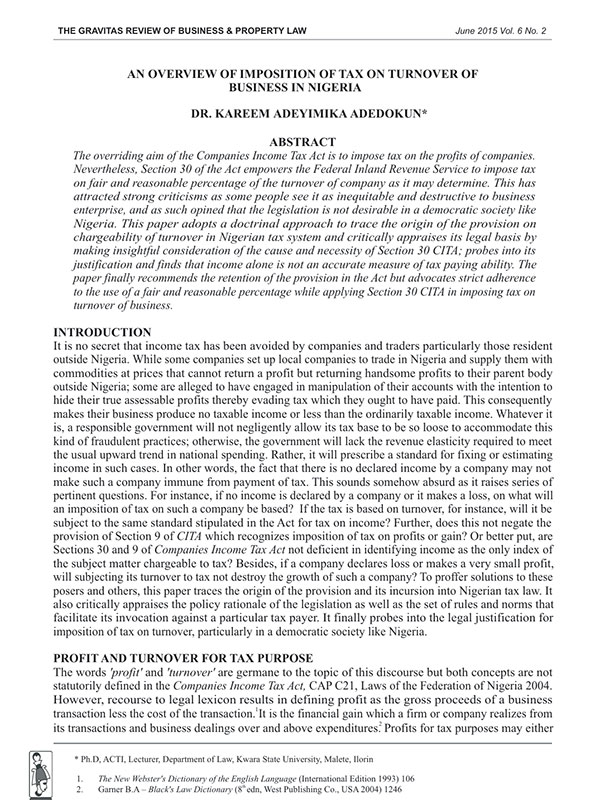
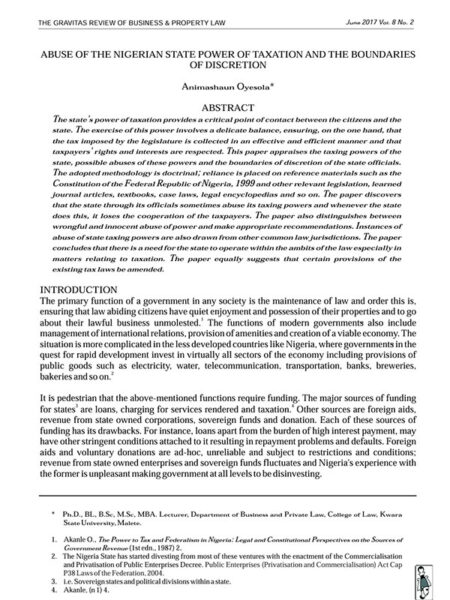
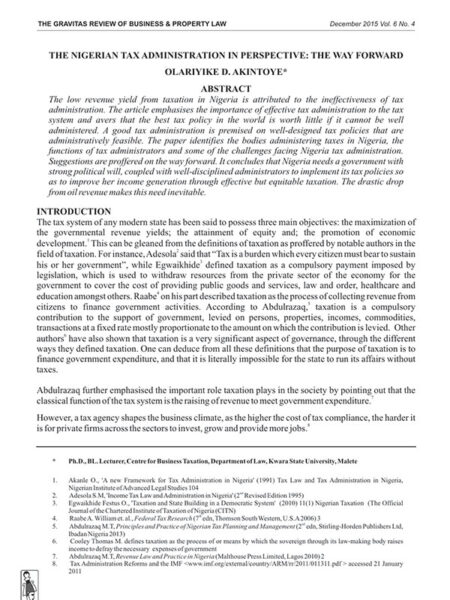
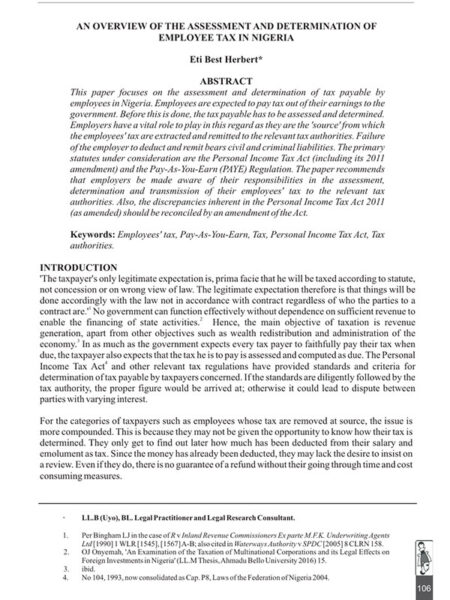
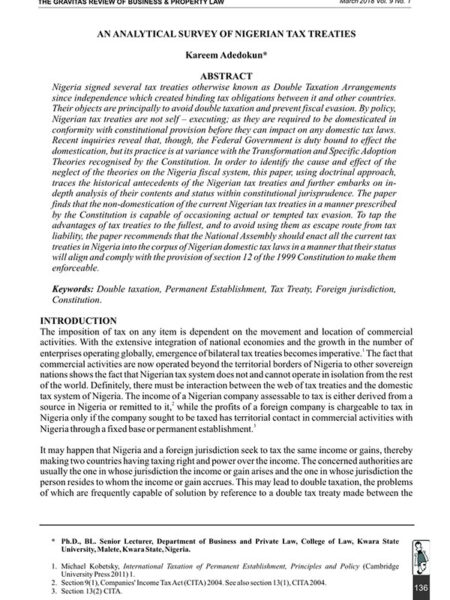



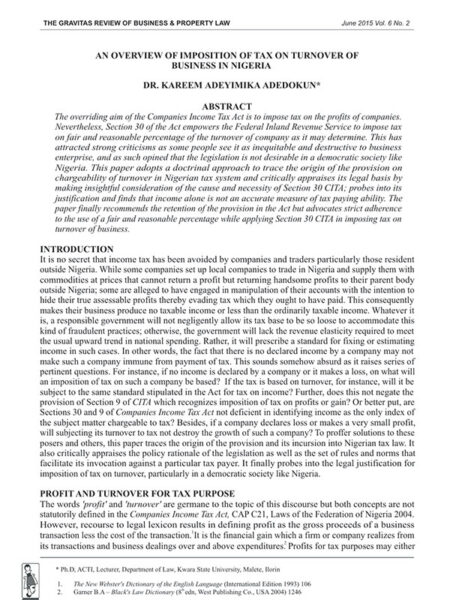
Reviews
There are no reviews yet.